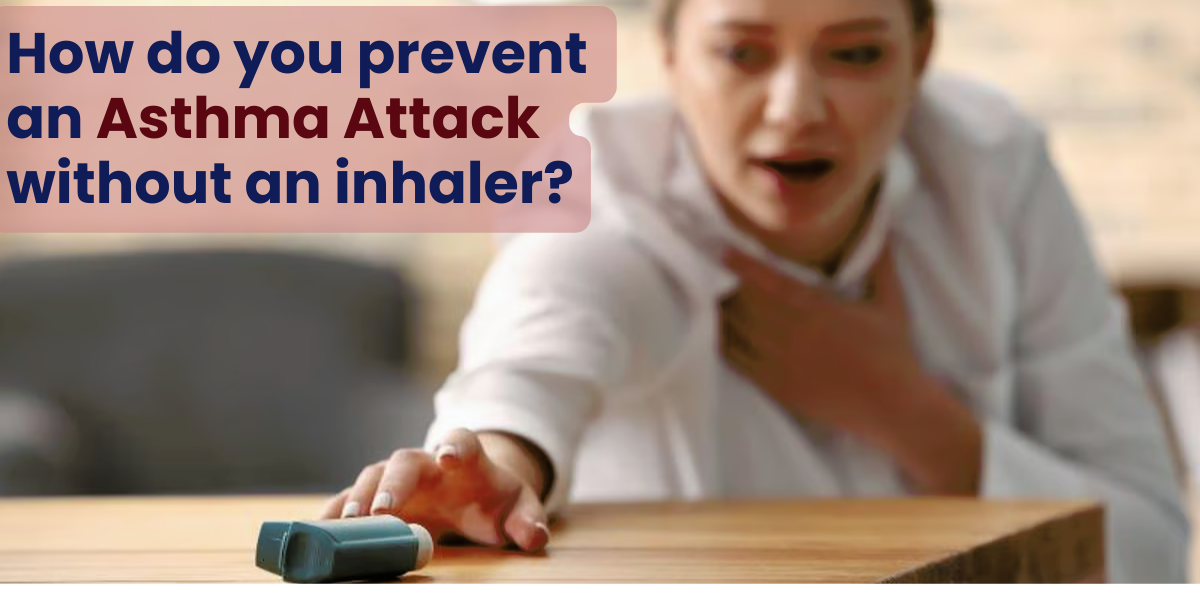Asthma happens when the tubes in your lungs get swollen and make extra mucus, making it hard to breathe. Things like air pollution, cold weather, smoke, or pet hair can make it worse and cause an asthma attack. Doing too much exercise or getting really upset can also trigger asthma attacks.
How do you prevent asthma attacks?
Identify triggers:
Be aware of and avoid substances or situations that trigger your asthma, such as smoke, allergens, or exercise in cold weather.
Maintain a clean environment.
Reduce exposure to dust mites, pet dander, and mould by keeping your living spaces clean and well-ventilated.
Stay indoors during peak allergen times.
Pollen levels are often highest in the morning and evening, so consider staying indoors during these times.
Manage stress:
Practice stress-reducing techniques like deep breathing, meditation, or yoga to help prevent asthma symptoms.
Stay hydrated:
Drink plenty of water to keep your airways moist and less prone to irritation.
Exercise regularly:
Stay physically active to improve overall lung function, but choose activities that are less likely to trigger asthma, such as swimming or walking.
Use air purifiers.
Install air purifiers in your home to reduce airborne allergens and pollutants.
Monitor air quality:
Check air quality forecasts, and try to stay indoors on days when pollution levels are high.
Follow your asthma action plan:
Work with your healthcare provider to develop an asthma action plan and follow it consistently to manage your condition effectively.
Tips for Surviving an Asthma Attack Without an Inhaler
Sit Upright:
Find a comfortable chair or sit on a bed with your back straight.
Leaning forward slightly can also help ease breathing by allowing your lungs to expand more fully.
Slow down your breathing.
Practice controlled and deep breathing. Inhale slowly through your nose, allowing your lungs to fill, and then exhale through pursed lips to release air gradually.
Count to four as you inhale and exhale to maintain a steady and controlled breathing pattern.
Stay Calm:
Focus on remaining calm to prevent anxiety, which can exacerbate breathing difficulties.
Practice mindfulness techniques such as meditation or visualization to help calm your mind and body.
Get Away From the Trigger:
Identify and remove yourself from the source of any potential triggers, such as smoke, strong odours, or allergens.
If environmental factors are contributing to your breathing difficulties, moving to a well-ventilated area can provide relief.
Drink a warm beverage:
Sipping on warm tea or a non-caffeinated beverage may help relax your airways.
Avoid cold drinks, as they can potentially constrict your air passages
Get medical help:
If your breathing difficulties persist or worsen, seek immediate medical assistance.
Call emergency services or visit the nearest emergency room if you are unable to access your inhaler and are experiencing a severe asthma attack.
Inform medical professionals of your condition and any known allergies or triggers.
Conclusion:
Prevent asthma attacks by avoiding triggers, maintaining a clean environment, managing stress, staying hydrated, and exercising. In an attack without an inhaler, sit upright, practice controlled breathing, stay calm, avoid triggers, drink warm beverages, and seek immediate medical help if needed. Follow a personalized asthma action plan with your healthcare provider, such as Dr. Girish Kirad, an asthma specialist in Kharadi, Pune associated with Kirad Nursing Home.





